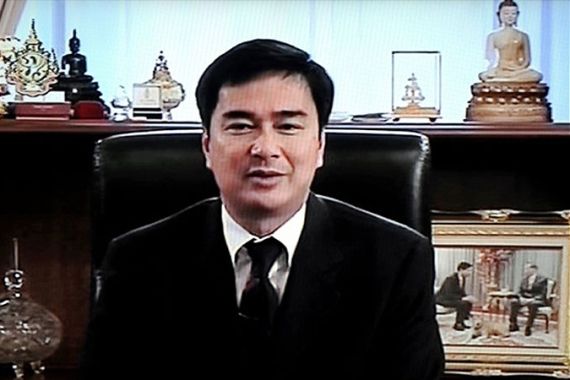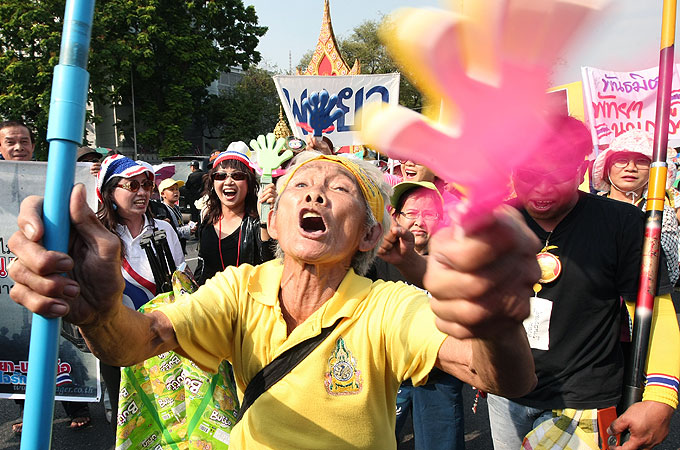Thai PM announces date for general election
The PM sets July 3 for the crucial polls after King Bhumibol Adulyadej approved the dissolution decree.

 |
| The election may heal political divisions but some fear it could also push Thailand back to the brink of chaos [EPA] |
Abhisit Vejjajiva, the Thai prime minister, has announced that he is dissolving the lower house of Parliament to hold early general elections on July 3.
The prime minister spoke on nationwide TV on Monday night after King Bhumibol Adulyadej approved the dissolution decree earlier in the day.
Monday’s decision sets in motion a new political battle between supporters of Abhisit and followers of Thaksin Shinawatra, the former prime minister, who was ousted by a military coup in 2006.
The dissolution was announced after a court ruled earlier on Monday that three recently passed electoral laws, needed for holding the polls, are constitutional. If Parliament had been dissolved without the ruling, the elections could have been open to legal challenges.
High stakes
The stakes are higher than at any time since the 2006 coup that plunged Thailand into a crisis broadly pitting the rural and urban poor supporters of Thaksin against the establishment elite.
The elections are expected to be fiercely contested between Abhisit’s ruling Democrat Party and the main opposition Puea Thai Party associated with Thaksin.
The Democrats held 172 seats in the outgoing lower house compared to 186 for Puea Thai, which won the most seats in the last elections in 2007 and formed a government that ruled for about a year.
“Results will be hard to predict this time,” Siripan Noksuan, a political scientist at Chulalongkorn University, said.
“Most surveys are predicting close polls and the lack of a clear decisive win is making everybody uneasy. The end of the crisis is difficult to foresee.”
Abhisit’s Democrat Party has not won an election in two decades, though analysts said the odds were in its favour because of new electoral rules and disarray inside the Puea Thai party, which still needs to settle on a new leader and line up candidates.
The poll will be the first time Abhisit will put his popularity to a democratic test since his coalition government came to power in late 2008.
‘Opposition to respect poll results’
The opposition says the parliamentary vote that brought him to power was arranged in the army barracks.
A court dissolved the previous pro-Thaksin ruling party for electoral fraud, which coincided with an eight-day blockade of Bangkok’s main airports by an anti-Thaksin group.
The election may heal political divisions, but some fear it could also push Thailand back to the brink of chaos following violent anti-government protests last year in which 91 people died.
The pro-Thaksin “red shirts” who battled the military in central Bangkok in April and May last year had said they would respect the results of the poll as long as there was no blatant, heavy-handed intervention by “unelected powers”.
Thailand’s economy, Southeast Asia’s second largest, is performing strongly and Abhisit has launched economic populist policies and subsidies targeting the poor, the vast majority of voters.
But the Puea Thai remains popular in the vote-rich north and northeast, strengthened by a sense of alienation and resentment among the red shirts, particularly after the violent end to the protest last year.
In a recent survey of 2,143 eligible voters by Assumption University, 36.4 per cent of respondents said they would vote for Puea Thai and 34.1 per cent for Abhisit’s Democrats.
Puea Thai had better scores than the Democrats on almost all categories, including policies, vision and administrative efficiency. The Democrats led in just one, “integrity and transparency”.
The polls will elect 500 members of the lower house, an increase of 20 from the outgoing chamber.